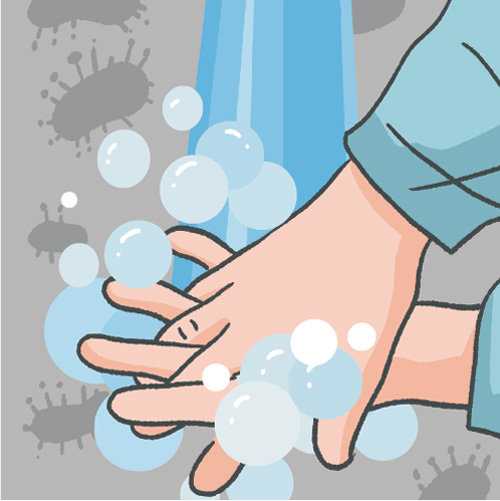Would COVID-19 end in summer?
Would COVID-19 end in summer?
Posted March. 07, 2020 07:52,
Updated March. 07, 2020 07:52

The novel coronavirus named COVID-19 is causing fear around the world. South Korea has been experiencing a surge in the number of confirmed cases due to the virus’ transmission among Shincheonji Church members after containing the virus relatively well for some time. The country is in the second stage, community transmission, which comes after the first stage, transmission from outside the country. Among a wide range of groups making predictions about how the current situation will unfold, the theory that COVID-19 will end in summer draws attention.
Such a claim is spreading rapidly based on the experiment mentioned by Professor of Preventive Medicine Choi Jae-wook at Korea University. “The virus can stay alive up to five to 20 days on the surface of an object at four degrees Celsius and 20 percent humidity. According to research results, however, when raising the temperature to 20 degrees Celsius and the humidity to 40 percent, its survival rate is reduced to one-tenth,” cautiously said Professor Choi. The fact that the transmission of another coronavirus SARS started in 2003 winter and ended in 2004 summer is another supporting base for the theory.
The public is also welcoming the rare positive forecast. Even a rumor that COVID-19 is vulnerable to heat so using a hairdryer on clothes or masks can kill the virus has spread but turned out to be false.
However, some say that spring will present a challenge before summer arrives. According to data presented by a microbiology research team at Queen Mary Hospital of the University of Hong Kong in 2011, the optimal conditions for SARS, which is genetically similar to COVID-19, to spread is 22 to 25 degrees Celsius in temperature and 40 to 50 percent in humidity. The experiment also strengthens the summer theory as the virus’ activity was drastically reduced at the temperature of 38 degrees Celsius and the humidity of 95 percent. However, the findings on the optimal conditions for the virus create fear that it has not reached the peak yet.
Some say that making predictions is rather meaningless. “Coronaviruses indeed have seasonality but we should not expect COVID-19 to have the same characteristic,” firmly said Marc Lipsitch, professor of epidemiology at the Harvard T.H. Chan School of Public Health and head of the School’s Center for Communicable Disease Dynamics. The example of Singapore backs such a view. According to the Singaporean Ministry of Health, the country has over 100 patients now despite temperatures reaching up to 31 degrees Celsius during the day.
Considering that even experts do not share predictions, the wisest way to deal with the virus is to keep good personal hygiene and avoid crowded places. It is also important to leave windows open frequently to remove the virus in the air as COVID-19 mostly transmits through droplets or contact but can also survive floating in the air under a certain environment. As there is a saying, “God helps those who help themselves,” it is time to contain the virus through individual efforts to keep good personal hygiene. Predicting what will happen with the virus only comes after that.
tjdrud0306@donga.com







